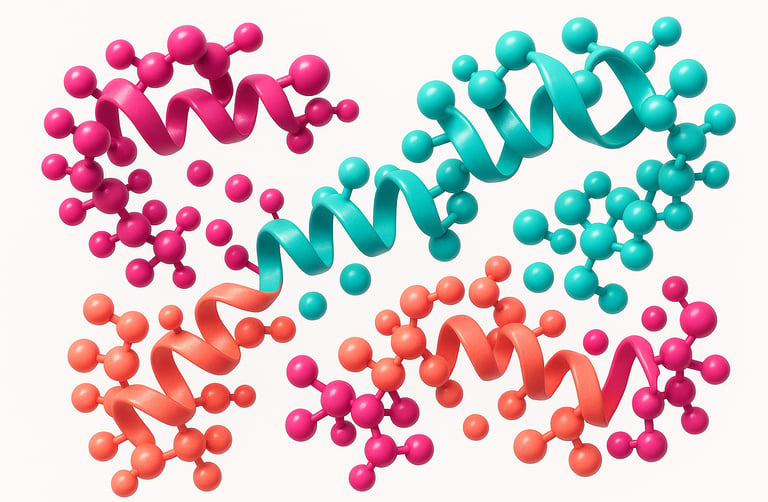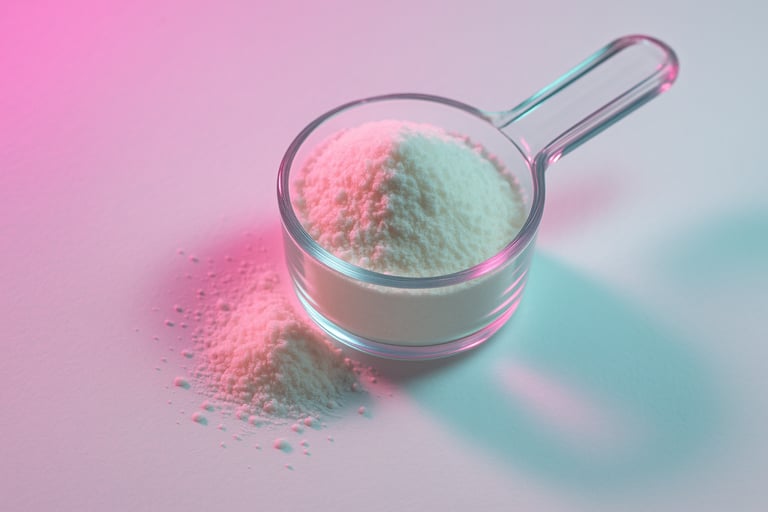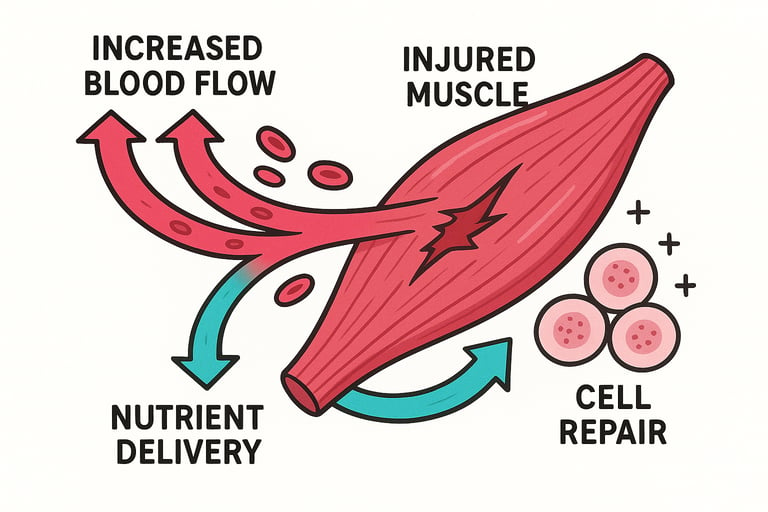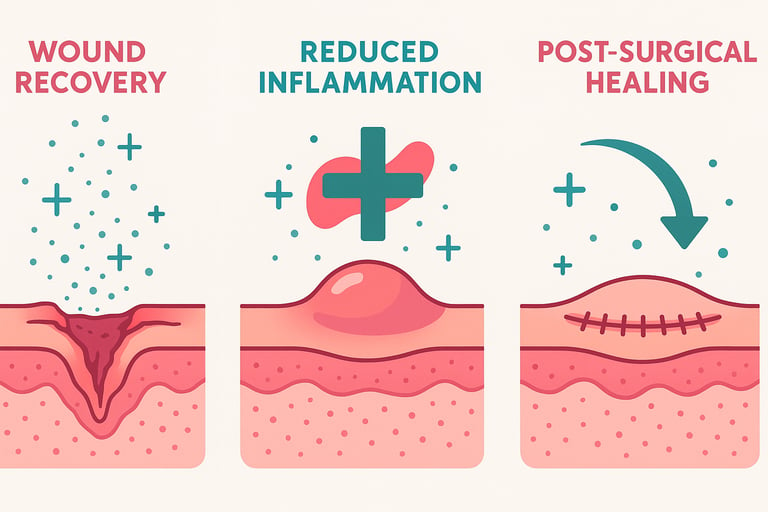Understanding Peptides for Healing Benefits
Learn how healing peptides support recovery by reducing inflammation, repairing tissue, and improving recovery times after injury or surgery.
WELLNESS
5/8/20243 min read


Understanding Peptides for Healing Benefits
Peptides are small chains of amino acids that play a key role in the body’s natural healing processes. They help repair muscles, tendons, ligaments, and skin by promoting tissue growth and reducing inflammation.
Specific peptides like BPC-157 and TB-500 are known for speeding up recovery and supporting injury repair. They signal the body to repair damaged cells, improve blood flow, and control inflammation — helping reduce pain and shorten recovery time.
I first started learning about healing peptides when a friend tore their Achilles tendon and used BPC-157 alongside physical therapy. Their doctor-approved regimen noticeably cut their recovery time, and they were back to light activity far sooner than expected. While not a replacement for medical treatment, peptides can be a valuable adjunct to a well-planned healing strategy.
This post contains affiliate links. That means if you click and purchase, we may earn a small commission—at no extra cost to you.


What Are Peptides?
Peptides are made of amino acids linked together in short chains — smaller than proteins but powerful in function.
They act like messengers, sending signals between cells to:
Trigger tissue repair
Control inflammation
Support cell growth
Because of their small size, peptides can easily reach target areas in the body, making them useful in both medical and wellness treatments focused on healing.


How Peptides Support Healing
Healing peptides help speed up the body’s natural repair processes by:
Reducing inflammation to limit damage
Increasing blood flow to deliver nutrients for repair
Stimulating new cell growth and collagen production
Easing pain signals from the nervous system
Many healing peptides are taken via injection for fast absorption, though topical creams and oral forms are becoming more available.
If you’re looking for a natural option to aid recovery from workouts, injuries, or even surgery, the Muscle + Metabolic Collection includes peptides formulated to support tissue repair, stamina, and overall recovery.


Types of Healing Peptides
Different peptides can target specific aspects of recovery and wellness. Here are a few I personally recommend based on both research and results:
Fit – Designed to support lean muscle recovery, reduce post-workout soreness, and help the body bounce back faster from physical stress.
Muscle + Metabolic Collection – Combines multiple peptides to promote stamina, enhance tissue repair, and keep your metabolism working efficiently during recovery.
Collagen Peptides – Known for improving skin elasticity, strengthening ligaments, and supporting healthy joints and connective tissue.
These peptides work on multiple tissue types — from muscles and ligaments to skin and joints — making them versatile tools for targeted healing and overall resilience.


Benefits and Applications of Healing Peptides
1. Wound Recovery and Tissue Repair
Peptides like BPC-157 and GHK-Cu promote blood flow and stimulate new tissue growth, encouraging cells to produce collagen for stronger, more resilient healing.
They can help close wounds faster, reduce scarring, and improve skin and muscle repair quality — useful for cuts, burns, or muscle tears.
2. Anti-Inflammatory Effects
By regulating the immune system, peptides can reduce swelling, tenderness, and redness after injury.
BPC-157, for example, lowers inflammatory markers, helping prevent further damage while allowing tissues to repair efficiently.
3. Post-Surgical Healing
After surgery, healing peptides can:
Reduce swelling and discomfort
Speed tissue repair
Lower infection risk by supporting immune defense
Injected or topical peptides are often used under medical guidance to accelerate wound closure and improve recovery outcomes.


Product Roundup
Here are my top peptide-based picks to support healing and recovery:
This post contains affiliate links. That means if you click and purchase, we may earn a small commission—at no extra cost to you.
Fit – Promotes muscle recovery, reduces soreness, and supports overall physical resilience.
Muscle + Metabolic Collection – A targeted peptide bundle designed to boost stamina, enhance tissue repair, and improve metabolic health.
Collagen Peptides – Helps strengthen skin, ligaments, and connective tissues while supporting long-term joint and skin health.
More FitWell Reads
If you enjoyed this article, you might also like:
© 2025 FitWell. All rights reserved.
This website may include affiliate links to various companies. When you make a purchase through these links, we may receive a small commission, at no additional cost to you.
Medical Disclaimer:
The information provided on this website is for educational purposes only and is not intended to diagnose, treat, cure, or prevent any disease. Always consult with a qualified healthcare professional before starting any new supplement, diet, or wellness program.




